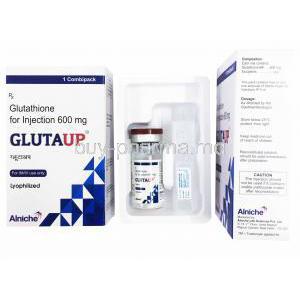Ashwagandha Extract
- I. Introduction to Ashwagandha Extract
- II. Composition of Ashwagandha Extract
- III. Uses of Ashwagandha Extract
- IV. Off-label Uses of Ashwagandha Extract
- V. How Ashwagandha Extract Works
- VI. Dosage and Administration
- VII. Common Side Effects and How to Manage Them
- VIII. Important Precautions and Warnings
- IX. Special Considerations for Different Populations
- X. Overdose and Handling Precautions
I. Introduction to Ashwagandha Extract
II. Composition of Ashwagandha Extract
Active Components and Their Functions: The primary active elements in Ashwagandha are withanolides, which are renowned for their ability to reduce inflammation, combat tumors, and regulate the system. These compounds are essential for the herbs properties as they help in managing the bodys response to stress.
Varieties of Ashwagandha Extracts: Ashwagandha extract is available in forms such as powder, capsules, and liquid, each containing varying levels of withanolides. Standardization and Quality Control: High-quality extracts undergo standardization to ensure a percentage of withanolides, guaranteeing consistency and effectiveness in every batch.

III. Uses of Ashwagandha Extract
-
Stress and Anxiety Relief:
- Ashwagandha is classified as an adaptogen, which means it helps the body cope with stress.
- It effectively lowers cortisol levels and aids in stress management.
- Research suggests that Ashwagandha supplements may significantly reduce perceived stress and cortisol levels, leading to improved sleep quality1.
-
Cognitive Enhancement:
- Ashwagandha is recognized for promoting brain health and enhancing cognitive functions.
- It may improve memory, concentration, and overall mental clarity.
-
Physical Performance and Recovery:
- With its capacity to increase strength and stamina, Ashwagandha plays a crucial role in improving physical performance.
- Athletes and fitness enthusiasts may benefit from its effects on endurance and post-exercise recovery.
IV. Off-label Uses of Ashwagandha Extract
-
Safeguarding Brain Health and Neurodegenerative Disorders:
- Ashwagandha exhibits neuroprotective properties, making it valuable for brain health.
- Research suggests it may help combat neurodegenerative conditions.
-
Dermatology and Skin Wellness:
- Ashwagandha’s advantages extend into the realm of skin wellness.
- It may contribute to managing skin-related issues.
V. How Ashwagandha Extract Works
The effectiveness of the extract is credited to its ways of working, impacting bodily processes to provide health advantages:
- Impact on Cortisol Levels; It decreases cortisol, the stress hormone reducing the physiological impacts of stress.
- Influence, on Brain Derived Neurotrophic Factor (BDNF); It boosts BDNF, aiding in growth and cognitive function.
- Enhancement of GABAergic Activity: It regulates receptors endorsing relaxation and mental tranquility.
- The Role of Withanolides: Withanolides play a part in these processes, supporting the extract's qualities.
VI. Dosage and Administration
Recommended Usage; A Science Backed Approach; The dosage can differ depending on the type of extract and the purpose typically ranging from 300 mg to 500 mg taken twice a day.
Ways of Taking It; Ashwagandha can be ingested in ways, such as capsules, powders and liquid extracts making it easy to include in daily routines.
When and How Long to Use It; The timing of consumption can be personalized based on preferences. Some may prefer it in the morning for an energy boost, while others may find it beneficial before bedtime for better sleep quality.

VII. Common Side Effects and How to Manage Them
Although Ashwagandha is generally considered safe for individuals, some people may encounter certain side effects. These could include:
- Digestive Discomfort: Some individuals might experience gastrointestinal problems, which typically improve by adjusting the dosage.
- Sleepiness or Drowsiness; Due to its relaxing properties it could lead to feeling sleepy so it's advisable to be cautious when engaging in activities that require alertness.
- Potential Allergic Reactions; While uncommon there is a chance of reactions occurring, in which case immediate discontinuation is recommended.
To minimize the likelihood of side effects, it's advised to start with a dose to gauge tolerance and seek advice from a healthcare provider, especially if you are taking other medications or have underlying health conditions.
VIII. Important Precautions and Warnings
Possible Reasons to Avoid Ashwagandha: While Ashwagandha offers health advantages, it may not be suitable for everyone. People with conditions like hyperthyroidism should steer clear of it as it could potentially raise thyroid hormone levels. Likewise, individuals with disorders such as rheumatoid arthritis or lupus might experience worsening symptoms due to Ashwagandhas effects on the immune system.
Careful Monitoring and Adjustments: For those who can benefit from Ashwagandha, close monitoring and adjustments in dosage are crucial. This is especially important for individuals with conditions; regular monitoring of symptoms and immune markers is recommended to prevent any exacerbation of autoimmune reactions.
Effects on Thyroid Function: Individuals with thyroid issues should keep an eye on their thyroid levels while using Ashwagandha, as it can impact the production of thyroid hormones. Moreover, considering the interactions with medications and other supplements is essential. Ashwagandha could interact with sedatives, immunosuppressants, and thyroid medication, potentially altering their effectiveness. It is highly advisable to consult a healthcare provider before starting Ashwagandha, particularly if you are taking other medications for safety reasons.
IX. Special Considerations for Different Populations
- Benefits and Risks of Using Ashwagandha for the Elderly: Ashwagandha could be helpful for individuals in improving sleep quality, managing stress, and boosting cognitive abilities. They should start with a dosage to avoid any sensitivity issues and keep an eye out for any potential negative reactions, especially if they are on other medications.
- Safety Considerations for Pregnant Women and Nursing Mothers: The safety of using ashwagandha during pregnancy and breastfeeding has not been clearly determined. Given its effects and the lack of research in these specific groups it is recommended that pregnant women and nursing mothers avoid using ashwagandha as a precautionary measure.
- Guidelines for Administering Ashwagandha to Children: While ashwagandha may have benefits for children, like improving focus and reducing stress, it is important that its use in children is supervised by a healthcare professional. It is crucial to determine the appropriate dosage and closely monitor any potential side effects to ensure the child's safety.
X. Overdose and Handling Precautions
Recognizing the Signs of Taking Much: If you take too much ashwagandha, you might experience symptoms like feeling sick, having diarrhea, or vomiting. In situations you could also feel very tired and sluggish. It's important to spot these signs to handle an overdose properly.
Steps to Follow if You Overdose: If you think you've taken much of the supplement, it's crucial to stop using it and get medical help right away. Giving healthcare providers all the details about how much you took and when you took it can help them give you the care.
Precautions for Safe Handling and Storage: To avoid overdosing and ensure that ashwagandha stays effective, store it in a dry place away from sunlight. Also, make sure to keep it out of children's reach and follow the recommended dosages for usage.






















